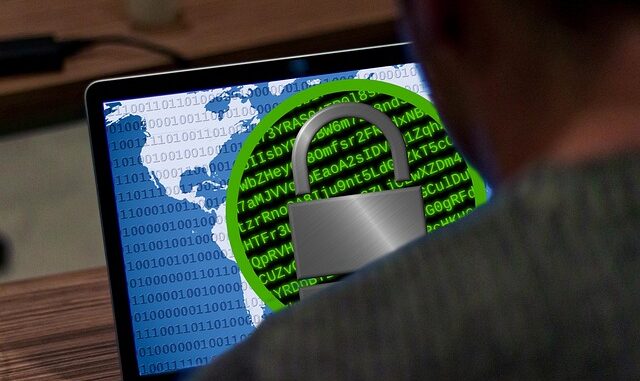
Summary
A ransomware attack has struck the New York Blood Center (NYBC), disrupting operations and compounding an existing blood shortage. The attack, discovered on January 26, 2025, has forced the NYBC to reschedule blood drives and implement workarounds to continue supplying hospitals. The incident underscores the vulnerability of critical infrastructure to cyberattacks and the potential for cascading consequences.
Keep your data secure with TrueNASs self-healing and high-availability technology.
Main Story
So, the New York Blood Center (NYBC), right? You know, the one that supplies blood to like, over 75 million people and 400 hospitals across the U.S. Well, they’ve been dealing with a double whammy. Not only were they facing a severe blood shortage – which, let’s be honest, is a pretty big deal on its own – but they also got hit with a ransomware attack on Sunday, January 26, 2025. Talk about bad timing, huh?
Basically, after NYBC noticed some weird stuff happening on their IT systems, they realized they’d been attacked. Because of that, they had to take some systems offline, which meant rescheduling blood drives and scrambling to find workarounds just to keep some blood flowing to hospitals. It hasn’t been easy, I can imagine.
This whole thing just highlights how vulnerable critical infrastructure, particularly in healthcare, is to cyberattacks. I mean, ransomware, it’s just everywhere. It locks up your data and demands a ransom, and it’s hitting everyone from small businesses to huge organizations. The NYBC attack just shows how these attacks can really mess with essential services and, make a bad situation even worse. They already had a blood shortage and this just threw gasoline on the fire.
That shortage, by the way, was due to a 30% drop in blood donations recently. They were already in emergency mode. Then, boom, cyberattack. It made it way harder for them to collect, process, and, get blood where it needed to go. What a mess!
While we don’t know the full impact yet, here’s what’s known: NYBC brought in cybersecurity experts and law enforcement to investigate and get their systems back up and running. They’re still taking blood donations, which is good, but processing times are longer, and some drives have been rescheduled. Now, as of February 12, 2025, NYBC has resumed all blood collection activities so progress is happening! Though, the scary thing, still lingering, is the potential compromise of donor data. Most ransomware gangs, they steal data before encrypting systems, using that as leverage. While no group has claimed responsibility yet, that threat is there.
It’s a total wake-up call for the healthcare sector, don’t you think? It screams the need for seriously robust cybersecurity measures to prevent, detect, and, you know, actually respond to these attacks. Regular security checks, employee training, solid data backups, and incident response plans are essential. Plus, healthcare orgs, government agencies, and cybersecurity firms need to team up to share information about threats and best practices. Really, it’s a must.
And the attack on NYBC, it isn’t a one-off. Lots of other healthcare organizations, including blood centers, have been targeted recently. This, frankly, is a concerning trend. Because healthcare systems are so interconnected, an attack on one place can ripple outwards, affecting patient care and putting lives at risk. It underscores the critical importance of cybersecurity preparedness in our increasingly digital world.
As of today, February 12, 2025, more information about the full impact is still coming out. So, yeah, it’s a reminder that these cyber threats are always changing, and we’ve got to be vigilant and adapt constantly to stay ahead, if that’s even possible.


The ransomware attack on NYBC highlights a concerning trend. Beyond immediate operational disruptions, the potential compromise of donor data raises serious privacy and security questions. What strategies can organizations implement to better protect sensitive data in the face of increasingly sophisticated cyber threats?
That’s a great point! The privacy implications are huge. Beyond just tech solutions, I wonder how much of a role insurance companies can play in incentivizing better security practices and helping organizations recover effectively. What are your thoughts on the role of cyber insurance?
Editor: StorageTech.News
Thank you to our Sponsor Esdebe
So, ransomware *and* a blood shortage? Did the hackers demand payment in O negative? Talk about adding insult to injury.
Haha, that’s a clever (and dark!) thought! It really does highlight the unfortunate timing of the attack. Makes you wonder what kind of creative ransom demands we might see in the future, though hopefully none involving vital resources like blood!
Editor: StorageTech.News
Thank you to our Sponsor Esdebe
A 30% drop in donations *before* the ransomware attack? Sounds like someone should have offered a free cookie with every pint. Maybe better incentives would have secured their systems *and* the blood supply.
That’s a fun thought! You’re right, incentives matter. It really begs the question, what kind of incentives beyond cookies (though those are great!) could boost donations *and* encourage better cybersecurity practices? Perhaps a tiered reward system based on donation frequency and security awareness training participation?
Editor: StorageTech.News
Thank you to our Sponsor Esdebe
A 30% drop in donations and *then* a ransomware attack? Someone’s definitely testing Murphy’s Law. I wonder if they considered paying the ransom in plasma? It’s organic, ethically sourced, and probably more valuable than Bitcoin these days!
That’s a thought-provoking point about the value of plasma! It really underscores the dire situation NYBC was in. Thinking outside the box, are there other non-traditional assets organizations could leverage, not for ransom, but to bolster their security budgets and preparedness in the first place?
Editor: StorageTech.News
Thank you to our Sponsor Esdebe